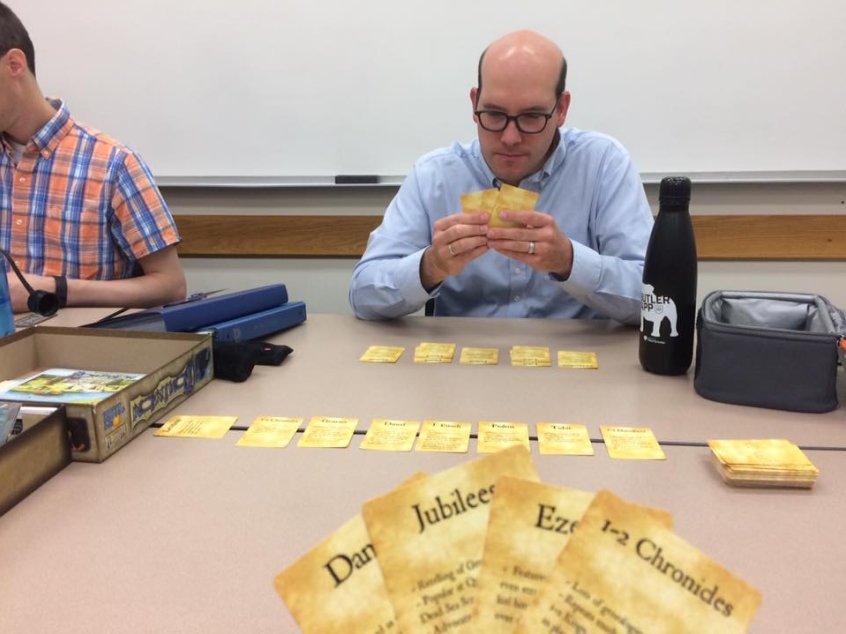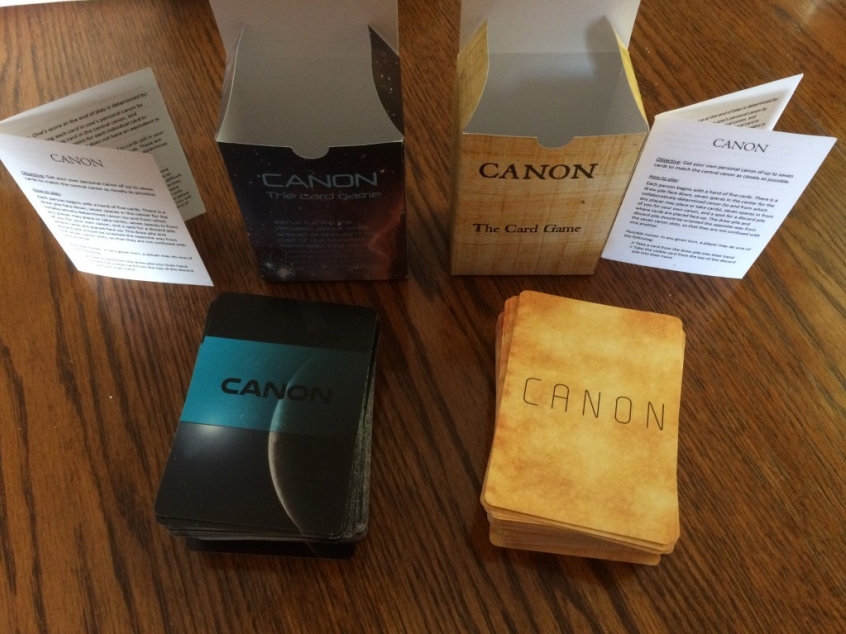The Bible and Star Wars have more in common than you might think.
That's what New Testament academic Dr James F McGrath wants you to know, and he's made a card game based on the Bible to prove it. He spoke to Christian Today about Canon: The Card Game – a creative way to engage with the surprising, oft-forgotten origins of Scripture.

The Bible didn't fall from the sky as the book we read today. It also isn't some dogmatic and political invention of Emperor Constantine and the early Church. The truth about how the Bible came to be is a little less simple.
McGrath, who teaches New Testament at Butler University, says: 'The game originated with one of the challenges I face as a professor who teaches a one-semester course on the Bible. Students regularly come to class with misconceptions about the biblical canon. Some think the whole thing dropped from the sky as a complete package, while others have heard the Da Vinci Code version that has Constantine telling the Church that it has too many Gospels and they need to cut the list down to four.'
He explains: 'As those who have studied it know, the actual history of the canon is a complex one, which started with works that a network of communities happened to have and share, and then met with debates among themselves, as well as between themselves and others, about works they did not all share. Discussions, additions, removals, and much else continued to happen down the centuries.'
However, the historical complexities of the Bible's origins don't tend to thrill many outside of specialist academia. McGrath said he had to find a way to take what is both essential to learn but can be 'incredibly boring' to study, and make it engage his students.
McGrath wondered: if the process of building Scripture's canon was 'competitive and collaborative at the same time', why not 'replicate these dynamics in a set of game rules [explained here], and have students learn about it not through reading or lecture but play'?
What most excited McGrath was when he realised that the concept of 'canon' for Scripture is very similar to that in popular modern 'fandom franchises' such as Star Wars, Star Trek or Doctor Who. In the communities gathered around those fantasy worlds, debate rages on about what stories classify as accepted 'canon' or not.
McGrath explains: 'When someone says that Star Wars Episode I is not as authoritative as the original trilogy, that parallels debates about the relative importance of Romans and James between Protestants and Catholics.
'And when all fans agree that the first Star Wars movie ever made is at the heart of the canon, and yet disagree about whether Han shot first, that is essentially a matter of textual criticism, akin to accepting the Gospel of John and yet debating the status of the story of the woman caught in adultery.'
To extend the comparison, both fields also have 'fan-fiction': works written by the devoted but not part of the authoritative canon – be they alternative or gnostic Gospels in the early Church, or novellas about the secret life of the Wookiee Chewbacca in Star Wars.

McGrath first unveiled his cards in a class on 'Religion and Science Fiction'. It was well received and he's since updated it with various editions with the help of professional game-publishing company The Game Crafter. It's now reportedly been used by professors in classes in the US, the UK, Australia, Norway and Singapore.
McGrath said his most interesting reaction to the game was from a group of students at Christian Theological Seminary in Indianapolis. He said: 'They paid much more attention to what was written on the cards than my undergraduate students at Butler did. They cared whether the Gospel of Mark, for instance, was or was not in the canon, and so that shaped their game play in interesting ways.'
McGrath appears to be straddling two worlds which it might be argued aren't really so different: the world of biblical scholars, and the world of zealous fantasy fandom. Both communities are somewhat exclusive, with their passionate participants both united in their niche fascinations – and frequently at odds over them too.
In the next few months McGrath will present his game to conferences of both crowds: the Gen Con gaming convention in Indianapolis, and the prestigious academic gathering that is the Society of Biblical Literature Annual Meeting.
He notes: 'Needless to say, those will be very different presentations.'
You can find out more about Canon: The Card Game on its Facebook page













